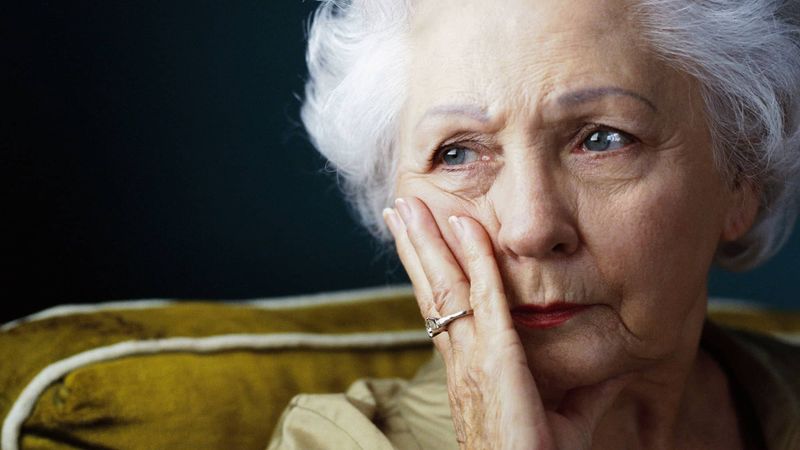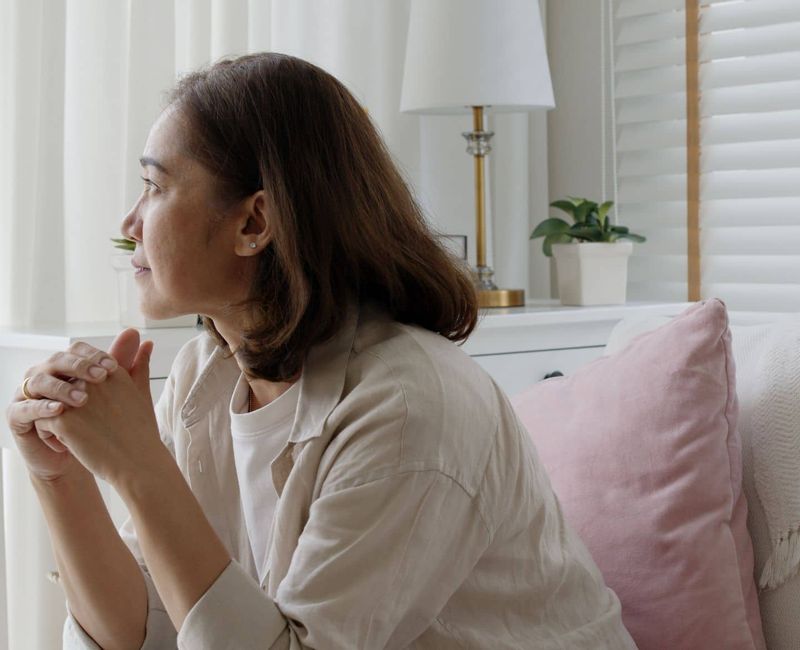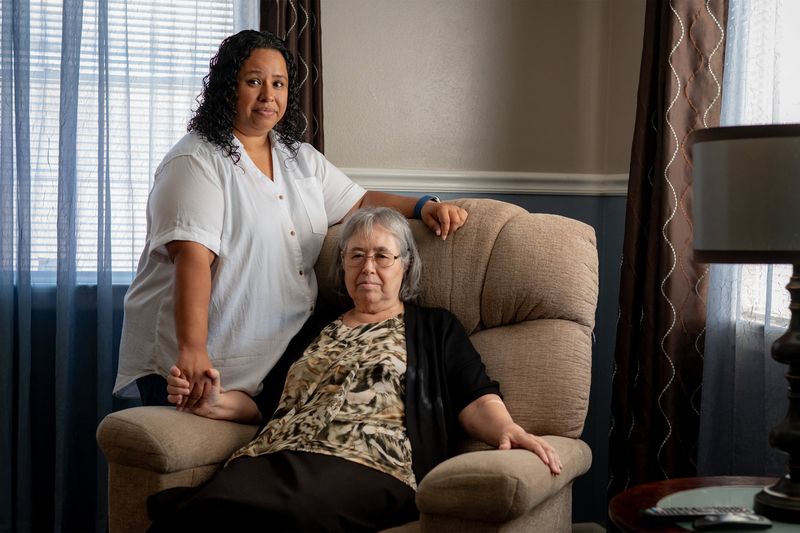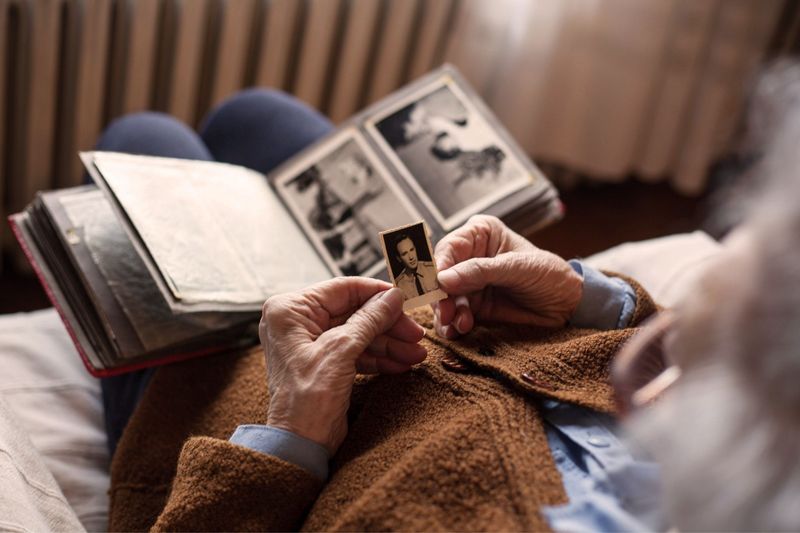Marriage is often a complex and multifaceted journey. For some women over 60, the decision to stay in an unhappy marriage is influenced by various factors, from financial concerns to emotional ties that have been built over decades.
This blog explores 19 reasons why some women choose to remain in these situations, shedding light on the internal and external forces that make leaving feel impossible, even when the desire to do so is strong.
1. Fear of Financial Instability
Financial insecurity is a real fear for many women over 60. Retirement savings may not suffice, especially when shared resources are diminished by divorce. The anxiety of managing finances alone is compounded by the reality of a fixed income. Many women worry about their ability to sustain themselves independently.
This fear often outweighs the emotional cost of staying in an unhappy marriage. The stability of a shared household appears more reassuring than the financial uncertainties awaiting outside. Despite the emotional toll, the economic implications of leaving are a substantial deterrent, keeping many women tethered to marriages they wish to escape.
2. Worry About Starting Over Later in Life
The thought of starting anew later in life can be overwhelming. For women over 60, the idea of rebuilding from scratch seems insurmountable. Years of shared experiences and familiar routines provide a sense of identity that is difficult to abandon. The fear of venturing into the unknown, creating new social circles, and adapting to a single life is intimidating.
Moreover, many feel that societal norms do not support late-life reinvention, adding to their hesitation. The burden of these fears becomes a significant influence, convincing them that it’s easier to remain in the familiar, albeit unhappy, space they know.
3. Feeling Responsible for Their Spouse’s Wellbeing
Many women feel a deep sense of duty towards their spouse’s wellbeing, even in unhappy marriages. This caretaking role, ingrained over years, becomes part of their identity. Leaving a spouse who relies on them for emotional or physical support feels heartless. The guilt of potentially worsening their partner’s situation is a heavy burden.
This sense of obligation binds them to a marriage that no longer brings happiness. The fear of abandoning a partner in need can overshadow personal unhappiness. Many women choose to endure their dissatisfaction, prioritizing their spouse’s needs over their own desire for change.
4. Guilt Around What Others Would Think
Social perception and judgment weigh heavily on decisions to stay in an unhappy marriage. Women over 60 often come from a generation where appearances mattered greatly, and divorce was stigmatized. The fear of gossip and the judgment of peers and family can be overwhelming. Maintaining a facade of a stable marriage becomes a shield against societal scrutiny.
The shame associated with admitting marital failure can lead to a decision to stay, even when the heart yearns to leave. The emotional toll of perceived failure and public opinion often keeps many women trapped in situations they desperately wish to escape.
5. Long-Held Beliefs About “Marriage for Life”
The belief in ‘marriage for life’ is deeply rooted in many women over 60. Raised in an era where divorce was less common, they were taught to view marriage as a lifelong commitment. This belief is intertwined with religious and cultural values that emphasize perseverance in marital vows. Walking away is seen as a failure to uphold these sacred promises.
For these women, enduring an unhappy marriage becomes a testament to their strength and commitment. Despite personal unhappiness, they choose to honor the lifetime commitment they’ve made, even if it means sacrificing their own desires for fulfillment.
6. Lack of Emotional Support Outside the Marriage
Isolation can be profound for women who lack emotional support outside their marriage. Friends and family may have drifted away over the years, leaving them with limited networks for comfort. The absence of a supportive community makes the thought of leaving more daunting.
In a world that increasingly values personal connections, these women find themselves without a safety net. The fear of loneliness becomes paramount, overshadowing the desire to leave. Many choose to stay, even in unhappiness, because the alternative—facing the world alone—feels even more isolating.
7. Not Wanting to Disrupt Family Traditions
Family traditions hold immense significance for many women over 60. Holiday gatherings, birthdays, and shared milestones are woven into the fabric of their lives. The prospect of divorce threatens to unravel these cherished rituals. Many women fear that leaving an unhappy marriage will disrupt the family unit and traditions they’ve worked hard to maintain.
The idea of causing a rift during family celebrations is enough to keep them in place. Despite personal dissatisfaction, preserving the family structure for the sake of children and grandchildren becomes a priority, reinforcing their decision to stay.
8. Being Told for Decades to “Be Grateful”
For many women over 60, gratitude has been a mantra instilled from a young age. They’ve been taught to appreciate what they have, even when it falls short of happiness. This internalized belief can trap them in marriages that no longer serve their needs. The idea of wanting more feels selfish and ungrateful, especially when compared to societal pressures to maintain harmony.
This mindset becomes an invisible chain, binding them to an unfulfilled life. The struggle to reconcile gratitude with personal happiness leaves many women feeling conflicted, opting to stay rather than pursue the unknown.
9. Fear of Loneliness Outweighing Fear of Staying
Loneliness can be an overpowering fear, even greater than staying in an unsatisfying marriage. For women over 60, who have invested years into their relationships, the thought of being alone is terrifying. The familiar presence of a partner, even when love has waned, is comforting.
This fear of isolation often outweighs the misery of staying. The idea of starting anew without the safety net of companionship feels insurmountable. Many choose the lesser of two evils, preferring the known company of an unhappy marriage over the daunting prospect of solitude in their later years.
10. Not Wanting to Admit the Relationship Failed
Admitting that a marriage has failed can be a hard pill to swallow. For many women over 60, acknowledging this failure feels like a personal defeat. Years of investment in a relationship make it hard to walk away, even when happiness is absent.
The idea of facing friends and family with the news of a failed marriage is daunting. Accepting failure is a bitter reality many are unwilling to confront. This reluctance to face the truth keeps many women in marriages that no longer serve them. The shame of failure, real or perceived, is enough to keep them tethered.
11. Assuming It’s “Too Late” to Rebuild a New Life
At 60 and beyond, the idea of starting from scratch seems improbable. Many women assume it’s too late to create a new life, fearing age-related barriers. This belief is reinforced by societal messages that prioritize youth in personal reinvention. The thought of rebuilding, forming new relationships, and reestablishing oneself feels exhausting.
The energy required for such an endeavor seems beyond reach. These assumptions often deter women from pursuing the change they secretly desire. Remaining in a known, albeit unhappy, space appears more manageable than facing the daunting task of starting anew.
12. Believing Their Needs Don’t Matter Anymore
For many women over 60, the belief that their personal needs no longer matter is deeply ingrained. Years of prioritizing family and others have taught them to subdue their desires. This self-sacrificing mindset makes the thought of leaving feel selfish. Over time, they’ve internalized the idea that seeking personal fulfillment is secondary to maintaining harmony.
This belief becomes a barrier to change, convincing them that staying in an unhappy marriage is the right thing to do. Even when yearning for more, the weight of their ingrained selflessness keeps them anchored to their current situation.
13. Physical Health Concerns That Complicate Independence
Physical health issues can complicate the decision to leave an unhappy marriage. As women age, health concerns often emerge, making the prospect of living independently daunting. The need for medical support and the comfort of having a partner during health crises can outweigh the desire for emotional freedom.
Many are afraid that leaving would mean facing health challenges alone, without the safety net a spouse provides. This fear keeps them bound to marriages lacking love but offering security. Health, more than happiness, becomes the deciding factor in remaining within the confines of an unsatisfactory union.
14. Emotional Exhaustion From Decades of Conflict
Decades of marital conflict can leave women emotionally exhausted. The constant cycle of arguments and unresolved issues becomes draining. Over time, the energy required to leave fades as the emotional toll takes precedence. For many, the thought of starting over after years of strife seems impossible.
The familiarity of conflict, though unpleasant, becomes a known entity. Walking away demands a level of emotional resilience that feels depleted. Despite the unhappiness, the sheer exhaustion from years of discord convinces them to stay, accepting a compromised peace over the turmoil of change.
15. Children Urging Them to Stay “For the Family”
Family dynamics can heavily influence a decision to remain in an unhappy marriage. Adult children, concerned about family cohesion, often urge their parents to stay together. The desire to maintain a unified family front, especially during holidays and gatherings, pressures women to stay. The emotional plea from children, prioritizing family over personal happiness, is compelling.
Many women, valuing their children’s opinions, choose to endure their dissatisfaction for the perceived greater good of family unity. This external pressure often becomes a significant force, overshadowing their inner desire to leave.
16. Avoiding the Paperwork, Legal Stress, or Logistics
The practical aspects of divorce can be overwhelming, particularly for women over 60. The thought of navigating legal systems, dealing with mountains of paperwork, and the logistical challenges of separation is daunting. Many women fear the complexity and stress of unraveling a shared life.
The prospect of dividing assets, dealing with legal fees, and the uncertainty of outcomes adds to their hesitation. The emotional and physical energy required to manage these tasks deters many from pursuing divorce. Staying in the marriage, despite its unhappiness, appears simpler than facing the bureaucratic labyrinth of separation.
17. Holding Onto a Few Good Memories as Justification
Memories can be powerful anchors. For many women over 60, the few cherished memories of happier times serve as justification to stay. These moments, frozen in time, provide a comforting reminder of what once was. The nostalgia for a past filled with love and joy makes leaving harder.
They hold onto these fleeting glimpses of happiness, using them to overshadow the present unhappiness. The emotional connection to these memories becomes a tether, binding them to a marriage that no longer fulfills their needs. The past, though distant, remains a significant influence in their decision to stay.
18. The Comfort of Routine
For many women over 60, the comfort found in a well-established routine provides a sense of security. Years of predictable daily activities can create a cocoon of familiarity.
Breaking away from this can be daunting, as it involves not just a change of environment but a complete lifestyle upheaval. The thought of reestablishing a new rhythm, especially alone, can be overwhelming.
This reliance on routine is not merely about habit but about maintaining a connection to a life built over decades, which often outweighs the unhappiness experienced.
19. Financial Entanglement Beyond Money
While financial instability is a recognized concern, there exists a deeper financial entanglement for many women. This involves shared investments, businesses, or properties that are more than just assets.
These elements symbolize years of joint efforts and successes, making the disentanglement process not just financially but emotionally taxing.
Leaving such entanglements can feel like undoing a significant part of one’s life achievements, adding a layer of emotional weight to the decision to stay.




















